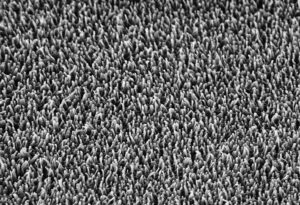RMIT’s tiny titanium spike breakthrough suggests antimicrobial surfaces “may need to be rethought”

An RMIT University team has shown promising results from insect-inspired “microscale spikes” for titanium implants and other surfaces, demonstrating drug-free anti-bacterial and anti-fungal properties.
According to a statement from the university, the features on the “micro-pillared titanium surface pattern” were about the height of a bacteria cell and designed to address drug-resistant “superbugs” which are an increasing infection risk.
Effectiveness had previously been demonstrated against bacteria including golden staph in a study published in journal Materialia, and extends more than a decade of work by RMIT’s Multifunctional Mechano-biocidal Materials Research Group in antimicrobial surfaces inspired by “nanopillars” found on cicada and dragonfly (pictured below, magnified 20,000 times) wings.
The new study in Advanced Materials Interfaces tested etched titanium surfaces against multi-drug-resistant candida, a fungus “responsible for one in 10 hospital-acquired medical device infections”. It found about half of cells were killed soon after contact with the surface, with the rest injured and unable to multiply or create infection.
“The Candida cells that were injured underwent extensive metabolic stress, preventing the process where they reproduce to create a deadly fungal biofilm, even after seven days,” said lead postdoctoral researcher Dr Denver Linklater.
“They were unable to be revived in a non-stress environment and eventually shut down in a process known as apoptosis, or programmed cell death.”
Distinguished Professor Elena Ivanova, who is described as a pioneer in insect wing-inspired antimicrobial surfaces, said, “The fact that cells died after initial contact with the surface – some by being ruptured and others by programmed cell death soon after – suggests that resistance to these surfaces will not be developed.
“This is a significant finding and also suggests that the way we measure the effectiveness of antimicrobial surfaces may need to be rethought.”

Phuc Le – the study’s lead author and joint PhD candidate with RMIT and the ARC Research Hub for Australian Steel Manufacturing – said the team had worked closely with industry partner BlueScope Steel, and this helped focus on creating practical solutions.
“Collaborating with industrial partners has been a transformative aspect of my PhD journey,” he added.
The paper, Apoptosis of Multi-Drug Resistant Candida Species on Microstructured Titanium Surfaces, can be accessed here.
Pictures: supplied
@aumanufacturing Sections
Analysis and Commentary Awards casino reviews Defence Gambling Manufacturing News Online Casino Podcast Technology Videos





